
In the firmament of Hollywood, few stars shine with the consistent brilliance, gravitas, and quiet integrity of Denzel Washington. Across decades, he has captivated audiences with performances that transcend mere entertainment, offering profound explorations of the human condition, often imbued with a sense of purpose and a palpable moral compass. Yet, beneath the acclaimed actor, the two-time Academy Award winner, and the man named the greatest actor of the 21st century by The New York Times, lies a deeply rooted personal philosophy shaped by unwavering faith, the steadfast bonds of family, and a series of transformative choices that have guided his path both on and off screen.
His journey is not merely a tale of cinematic triumphs, but a compelling narrative of character forged in the crucible of real-life experiences and convictions. It is a story of a man who, despite achieving unparalleled success in an industry often synonymous with fleeting fame, has consistently returned to the bedrock principles that define him. We delve into the foundational elements that have sculpted this remarkable individual, exploring the personal pillars that support his extraordinary public life.
From the echoes of a minister’s teachings in his childhood home to the powerful influence of pivotal life decisions, Washington’s life offers a mosaic of dedication. His narrative provides a rare glimpse into the inner workings of an artist who views his craft as more than just a profession, but as a calling, intertwined with his spiritual journey and his profound commitment to those he holds dear. Join us as we uncover the deliberate choices and profound influences that have defined Denzel Washington’s singular trajectory.
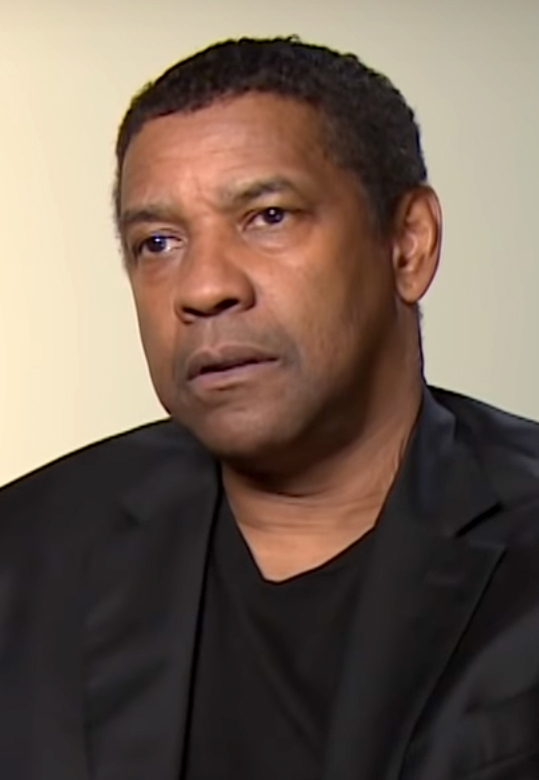
1. **A Foundation of Faith: The Minister’s Son**
Denzel Hayes Washington Jr. was born on December 28, 1954, in Mount Vernon, New York, into a home where faith was not just a practice but a palpable presence. His father, Denzel Hayes Washington Sr., was a native of Buckingham County, Virginia, and an ordained Pentecostal minister. This upbringing instilled in young Denzel a profound spiritual framework, one that would resonate throughout his life and career, subtly shaping his worldview and the roles he would ultimately choose to inhabit.
His mother, Lennis “Lynne” Lowe, a beauty parlor owner and operator from Georgia, complemented this spiritual environment with her own strength and determination. Together, they provided a formative bedrock for Washington’s early years, guiding him through elementary school in Mount Vernon. The influence of an ordained minister father, in particular, cannot be overstated, planting seeds of conviction and moral fortitude that would later blossom into a defining characteristic of the man and the actor.
In his youth, the cinema was not the primary source of entertainment for Denzel and his siblings. His father, the minister, barred them from going to the movies, directing their gaze instead toward religious narratives. Films like “King of Kings” and “The Ten Commandments” became their cinematic diet, a testament to the family’s deep-seated spiritual commitment and an early, albeit indirect, exposure to powerful storytelling through a moral lens.
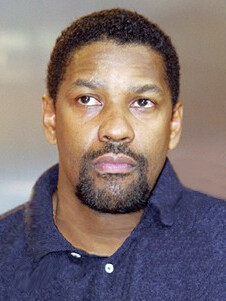
2. **Considering the Pulpit: A Call Beyond Hollywood**
Beyond his esteemed acting career, Denzel Washington is openly a Pentecostal Evangelical Christian, a devout member of the West Angeles Church of God in Christ in Los Angeles. This commitment is not merely nominal; it is an active, guiding force in his life, one that has even led him to contemplate a path remarkably different from the silver screen.
Washington has candidly expressed an internal dialogue about a potential calling to the ministry, revealing a deep-seated spiritual yearning. In a 1999 statement, he shared, “A part of me still says, ‘Maybe, Denzel, you’re supposed to preach. Maybe you’re still compromising.’” This introspection reveals a man who constantly evaluates his life’s purpose through the lens of his faith, questioning if his chosen profession truly aligns with a divine mandate.
Indeed, for Washington, his acting work often transcends mere performance; it becomes a form of ministry. He has articulated a belief in using his talent for good, seeing his roles, especially those portraying “great men,” as opportunities to “preach” through their words. This perspective transforms his craft into a platform for conveying messages of integrity, resilience, and humanity, making his cinematic narratives resonate with an often-spiritual depth.
His commitment to this spiritual path was further formalized recently. On December 21, 2024, Denzel Washington was baptized and received his ministry license from the Kelly Temple Church of God in Christ, marking a significant milestone in his journey. This step underscores the profound and enduring nature of his faith, solidifying a calling that has long simmered beneath his celebrated public persona.
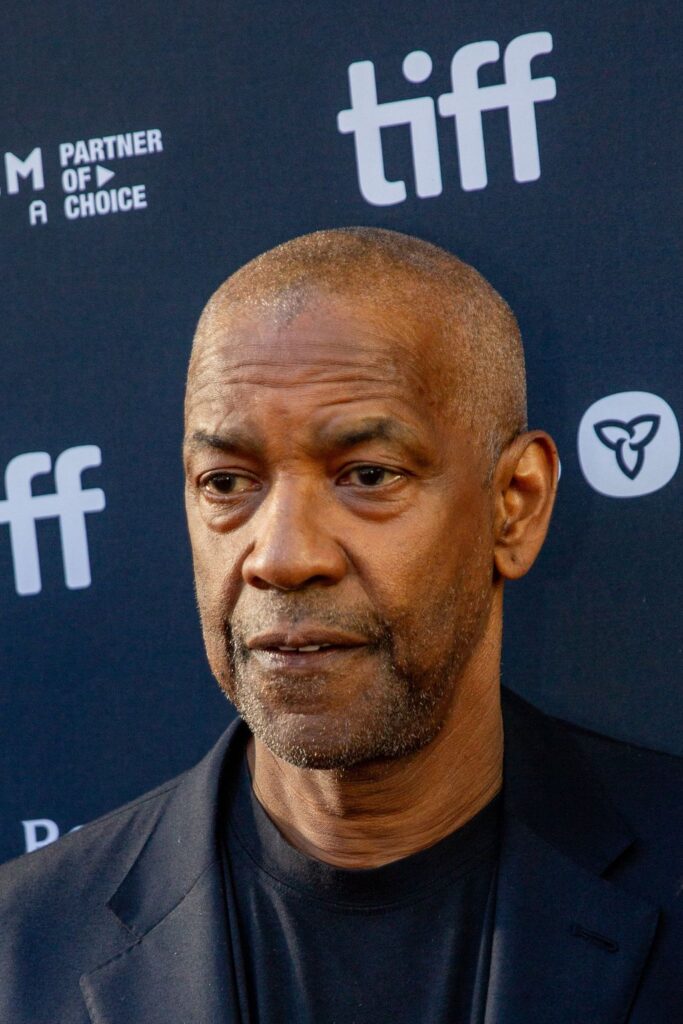
3. **Faith in Action: Philanthropy and Community**
Denzel Washington’s dedication to his faith is not confined to personal contemplation or the subtext of his performances; it manifests powerfully in his unwavering commitment to philanthropy and community service. His actions demonstrate a belief in concrete support for institutions and causes that uplift and inspire, translating his spiritual convictions into tangible good in the world.
One of his most significant gestures of support was a generous donation of US$2.5 million to aid in the construction of the new West Angeles Church of God in Christ facility in Los Angeles. This substantial contribution highlights his deep loyalty to his spiritual home and his desire to contribute to its growth and mission, embodying the principle of giving back to the community that nurtures his faith.
Beyond his church, Washington has been a steadfast advocate for youth development, serving as the national spokesman for Boys & Girls Clubs of America since 1993. His involvement extends to serving as a board member since 1995, actively participating in public service announcements and awareness campaigns. In 2006, for the organization’s 100th anniversary, he co-authored “A Hand to Guide Me” with Daniel Paisner, a book that underscores the transformative power of mentorship for young lives.
His compassion also extends to military families. In mid-2004, after visiting Brooke Army Medical Center (BAMC) at Fort Sam Houston and learning about the overcapacity at the Fisher House facilities—which provide free homes for military personnel and their families receiving medical care—Washington made a substantial donation to the Fisher House Foundation. This act of generosity earned him recognition as the 2021 Honorary Sergeant Major of the Army, an honor bestowed for his humility, dedication to soldiers, and respect for the Army.
Further demonstrating his global and educational altruism, Washington donated US$1 million to Nelson Mandela’s Children’s Fund in 1995 and another US$1 million to Wiley College. The latter donation was crucial in resuscitating the college’s debate team, a clear reflection of his belief in empowering young minds and fostering skills that promote critical thinking and articulate expression.
Read more about: The Silent Saviors: 9 Unforgettable Stories of Medical Debt Forgiveness by Kind Strangers and Inspiring Campaigns
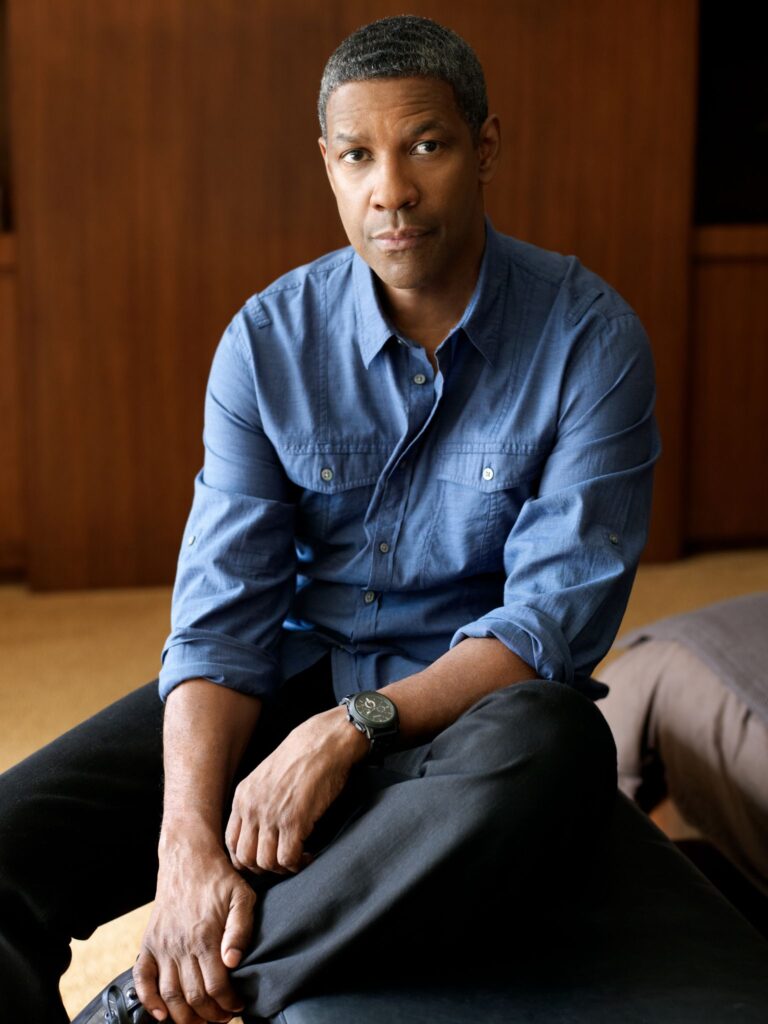
4. **A Lifelong Partnership: Marriage to Pauletta Pearson**
In an industry notorious for its transient relationships, Denzel Washington’s enduring marriage to Pauletta Pearson stands as a beacon of stability and commitment. Their love story began on the set of his very first screen work, the television film “Wilma,” where their paths serendipitously crossed. This initial encounter blossomed into a lifelong partnership, a testament to their mutual devotion and shared values.
They formalized their union on June 25, 1983, embarking on a marital journey that has spanned over four decades. Pauletta, an accomplished actress and musician in her own right, has been a constant presence and unwavering support throughout Denzel’s meteoric rise to stardom. Their partnership is often cited as one of Hollywood’s most inspirational examples of a lasting bond.
The depth of their connection was beautifully reaffirmed in 1995 when they renewed their wedding vows in South Africa, with the revered Archbishop Desmond Tutu officiating the ceremony. This intimate and symbolic event underscored not only their personal commitment to each other but also their shared values and connection to broader cultural and spiritual narratives. It was a profound moment, reflecting a marriage built on deep respect and mutual admiration.
Their marriage serves as a powerful counter-narrative to the typical Hollywood saga, embodying a steadfast loyalty that resonates with the principles of faith and family that define Denzel Washington’s life. It is a partnership that speaks volumes about character, resilience, and the quiet strength of two individuals committed to building a life together amidst the glare of public scrutiny.
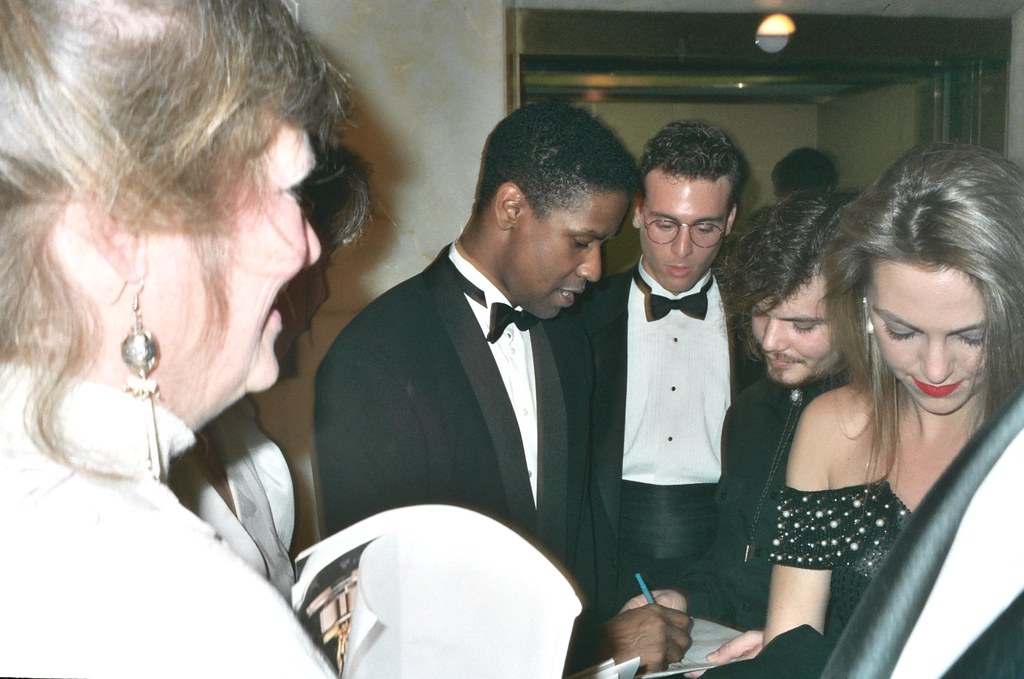
5. **A Legacy in the Arts: Raising Creative Children**
The Washington family extends Denzel and Pauletta’s artistic and principled legacy into the next generation, with all four of their children forging their own paths while often intersecting with the world of film and performing arts. This vibrant family dynamic showcases a fascinating blend of individual talents and collaborative spirit, reflecting the creative environment in which they were raised.
Their eldest son, John David Washington, has carved out a significant career as a successful actor, following in his father’s footsteps. Before his acting prominence, John David was also a professional football player, demonstrating a versatility that mirrors his father’s own diverse talents. His performances in films like “BlacKkKlansman” and “Tenet” have established him as a compelling leading man in his own right, continuing the Washington name in cinematic excellence.
Katia Washington, their daughter, pursued a different but equally impressive academic path, graduating from Yale University with a Bachelor of Arts in 2010. Her achievements underscore the family’s commitment to intellectual pursuit and a broader definition of success beyond the performing arts, illustrating a holistic approach to nurturing talent and potential within the household.
The twin siblings, Olivia and Malcolm, further enrich this creative tapestry. Olivia has ventured into acting, notably appearing in Lee Daniels’s film “The Butler,” showcasing her burgeoning talent on screen. Malcolm, having studied film at the University of Pennsylvania, has moved behind the camera, marking his directorial debut with “The Piano Lesson.” This project was a true family affair, with Denzel Washington serving as a producer and his brother, John David, starring in the film.
This multi-generational involvement in the arts highlights not just inherited talent, but also a nurtured environment that encourages exploration and collaboration. The Washington children are not merely beneficiaries of their parents’ fame but active contributors to a burgeoning legacy, each bringing their unique vision and skills to the fore, creating a remarkable and enduring family narrative within the entertainment industry.
Read more about: Beyond the Limelight: 15 Celebrities Who Are Seriously Changing the World with Their Generosity
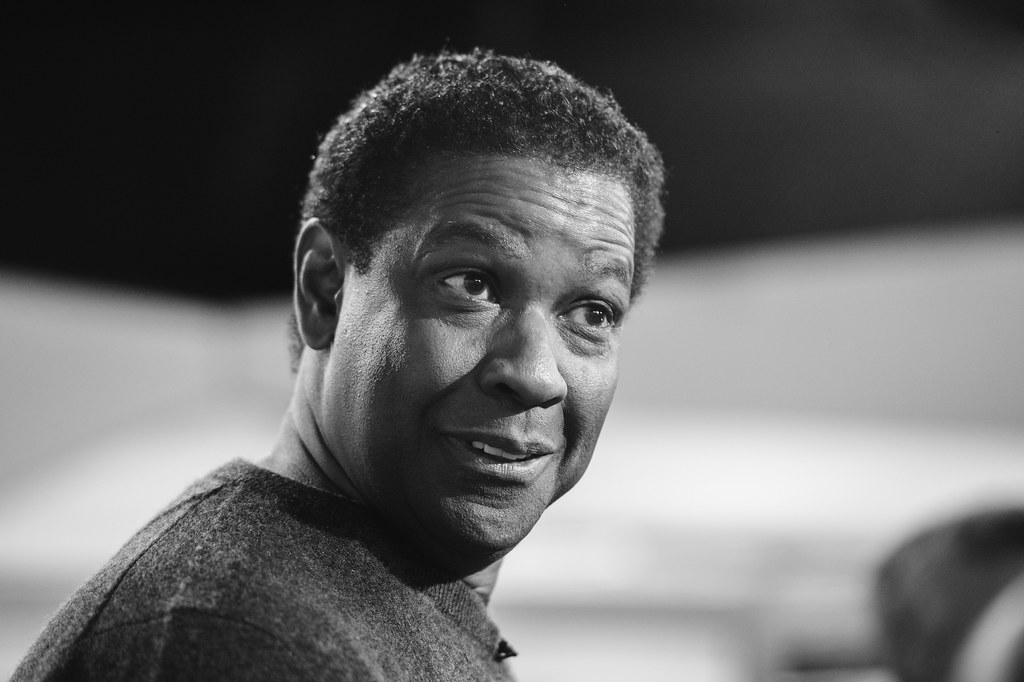
6. **The Transformative Power of Education: Military School and Fordham**
Denzel Washington’s formative years were marked by a pivotal educational decision that, in his own words, fundamentally altered the trajectory of his life. At the age of 14, following his parents’ divorce in 1968, his mother made the courageous and prescient choice to send him to Oakland Military Academy in New Windsor, New York. This was a critical intervention, rerouting him from a path that, as he later reflected, could have led to dire consequences.
Washington himself acknowledged the profound impact of this decision, stating, “That decision changed my life, because I wouldn’t have survived in the direction I was going. The guys I was hanging out with at the time, my running buddies, have now done maybe 40 years combined in the penitentiary. They were nice guys, but the streets got them.” This candid reflection underscores the transformative power of his mother’s foresight and the structured environment of the military academy in providing discipline and a new sense of purpose.
His educational journey continued with a period at Mainland High School in Daytona Beach, Florida, before he found his way to Fordham University. Initially, he experienced a period of indecision regarding his major and even took a semester off, a common phase of exploration for many young adults. During this break, he worked as a creative arts director at Camp Sloane YMCA in Lakeville, Connecticut, where a serendipitous moment unfolded.
It was during a staff talent show for the campers that a colleague, witnessing his innate charisma and performing ability, suggested he try acting. This seemingly casual remark served as an epiphany for Washington. Returning to Fordham with a newfound clarity and purpose, he enrolled at the Lincoln Center campus, dedicating himself to the study of acting. Here, he honed his craft, taking on significant roles such as the title characters in Eugene O’Neill’s “The Emperor Jones” and Shakespeare’s “Othello,” laying the groundwork for his illustrious career. He later pursued graduate studies at the American Conservatory Theater in San Francisco, though he ultimately returned to New York to launch his professional acting journey, equipped with a robust educational foundation and an unshakeable sense of calling.
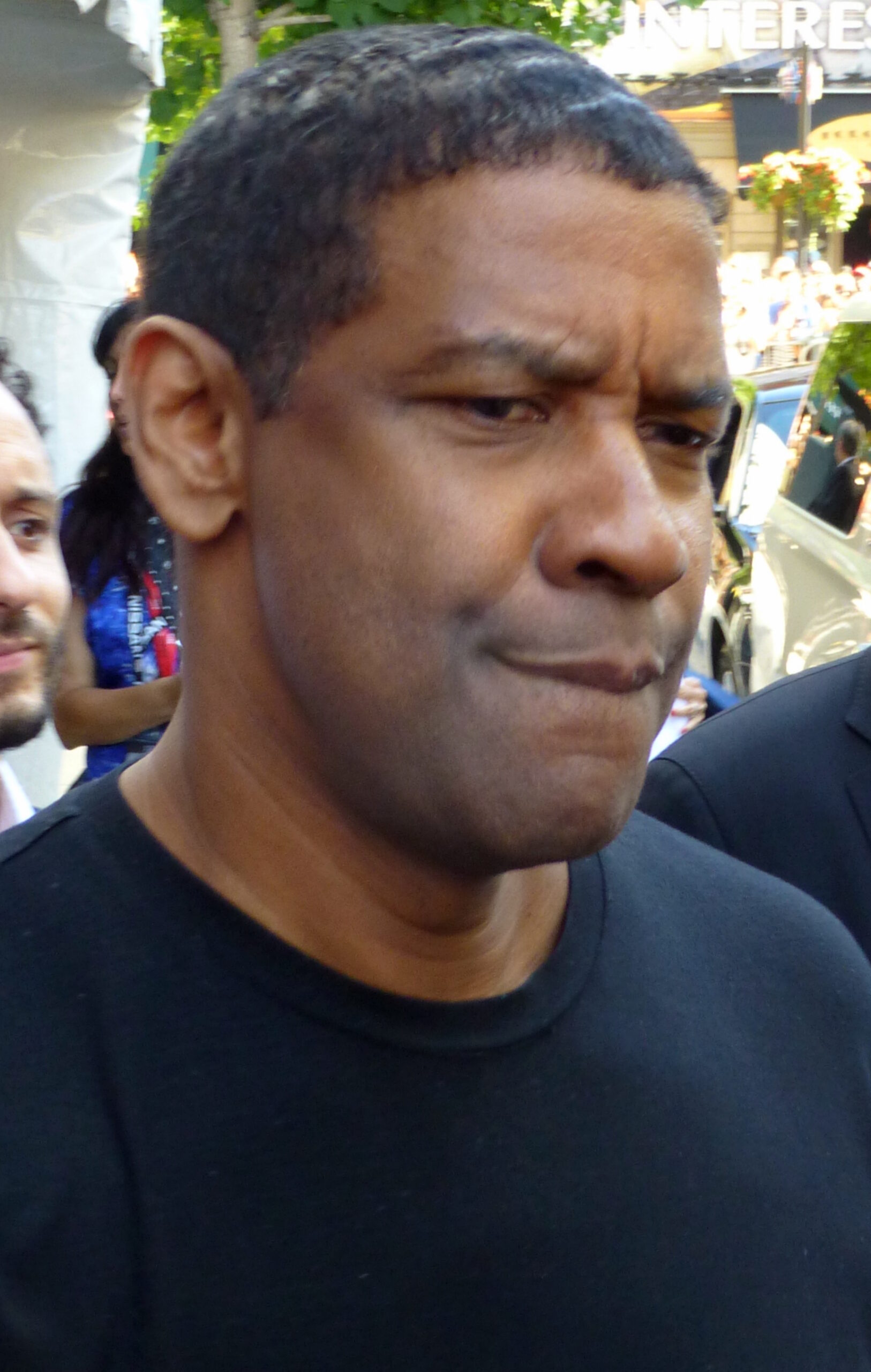
7. **The Thespian’s Beginnings: Stage Roots and Early Screen Prominence**
After a pivotal educational journey, Denzel Washington embarked on his professional acting career, initially honing his craft in the vibrant theater scene of New York. His training at the esteemed American Conservatory Theater equipped him with a robust foundation, preparing him for the diverse roles that would eventually define his celebrated career. This early period included summer stock theater, notably performing in ‘Wings of the Morning’ in St. Mary’s City, Maryland, a play specially written for him, weaving in an African-American character based on the historical figure Mathias de Sousa.
Washington’s entry into screen acting began modestly with his debut in the 1977 made-for-television film ‘Wilma,’ a docudrama about the legendary sprinter Wilma Rudolph. His first Hollywood appearance followed in the 1981 film ‘Carbon Copy,’ signaling his transition to larger cinematic canvases. Further solidifying his stage credentials, he earned a 1982 Distinguished Ensemble Performance Obie Award for his compelling portrayal of Private First Class Melvin Peterson in the Off-Broadway Negro Ensemble Company production of ‘A Soldier’s Play.’
A significant career breakthrough arrived with his role as Dr. Phillip Chandler in NBC’s groundbreaking television hospital drama ‘St. Elsewhere,’ where he remained for its entire six-year run from 1982 to 1988, standing out as one of the few African-American actors to achieve such consistent presence. During this period, he also expanded his filmography with roles in ‘A Soldier’s Story’ (1984), ‘Hard Lessons’ (1986), and ‘Power’ (1986), steadily building a reputation for dramatic intensity.
The late 1980s proved to be a watershed moment for Washington’s cinematic ascendance. His powerful portrayal of South African anti-apartheid political activist Stephen Biko in Richard Attenborough’s 1987 film ‘Cry Freedom’ earned him his first Academy Award nomination for Best Supporting Actor. Just two years later, he clinched his first Oscar for Best Supporting Actor, delivering an unforgettable performance as a defiant, self-possessed ex-slave soldier in the Civil War drama ‘Glory,’ cementing his status as an actor of profound gravitas and undeniable talent. That same year, he also appeared in ‘The Mighty Quinn’ and ‘For Queen and Country,’ further showcasing his versatility.
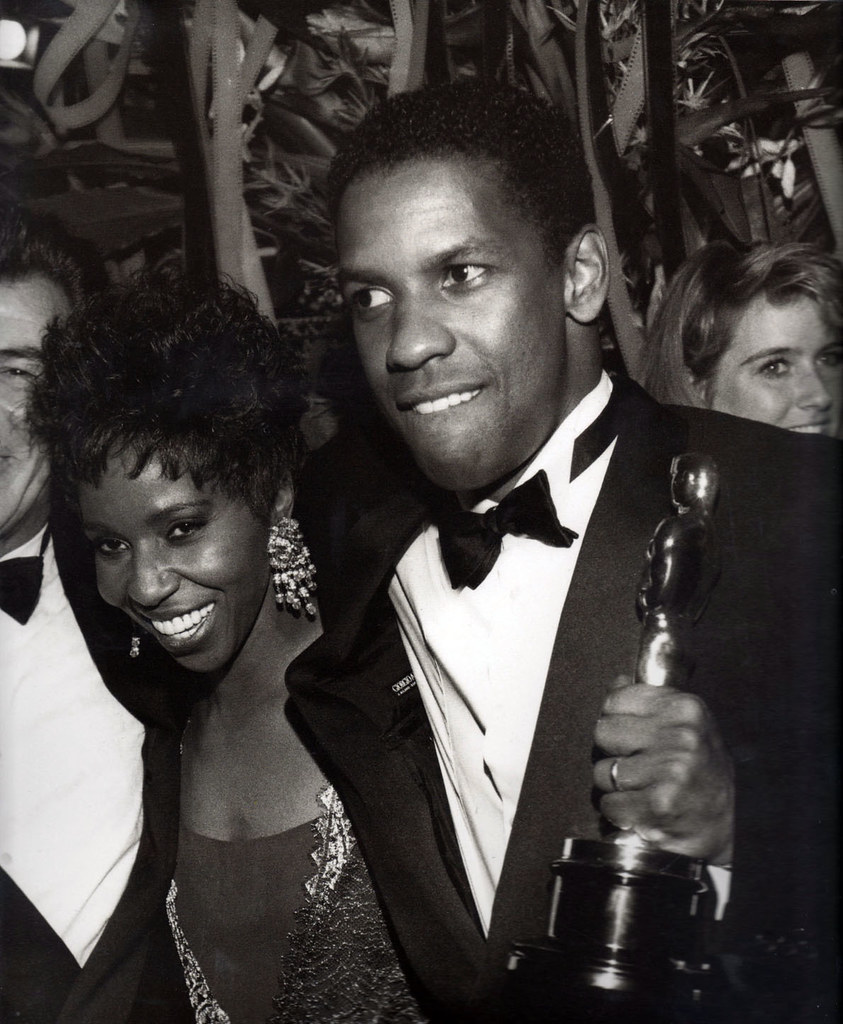
8. **Ascending to Stardom: Defining Roles of the 1990s**
The 1990s marked Denzel Washington’s unequivocal ascent to Hollywood stardom, characterized by a series of defining roles that showcased his versatility and dramatic prowess. His commitment to theater remained strong, as evidenced by his appearance in the title role of The Public Theater’s production of William Shakespeare’s ‘Richard III’ in the summer of 1990. Mel Gussow of The New York Times lauded Washington as “an actor of range and intensity, is expert at projecting a feeling of controlled rage,” a testament to his burgeoning power on stage.
This decade also saw the blossoming of his impactful collaborations with director Spike Lee, beginning with ‘Mo’ Better Blues’ (1990), where Charles Murray of Empire praised his “taut portrayal of the driven musician.” In 1991, he starred opposite Sarita Choudhury in Mira Nair’s romantic drama ‘Mississippi Masala,’ with critic Roger Ebert noting, “Washington is an actor of immense and natural charm, and he makes a good match with Sarita Choudhury,” highlighting his ability to create compelling chemistry on screen.
A pivotal and critically acclaimed role came in 1992 with his portrayal of the titular character in Spike Lee’s historical epic ‘Malcolm X.’ The New York Times’ Vincent Canby hailed his performance, stating, “In Denzel Washington it also has a fine actor who does for ‘Malcolm X’ what Ben Kingsley did for ‘Gandhi.’ Mr. Washington not only looks the part, but he also has the psychological heft, the intelligence and the reserve to give the film the dramatic excitement.” This iconic performance garnered him another Academy Award nomination for Best Actor, firmly establishing his place among the industry’s elite. That year, he also founded his production company, Mundy Lane Entertainment.
Washington further solidified his leading man status with diverse roles in successful thrillers and dramas. In 1993, he co-starred with Tom Hanks in Jonathan Demme’s ‘Philadelphia,’ playing the lawyer defending a gay man with AIDS, a role that brought important themes to a wider audience. He also appeared in ‘The Pelican Brief’ with Julia Roberts and demonstrated his classical range in Kenneth Branagh’s Shakespearean comedy ‘Much Ado About Nothing.’ In 1995, he starred alongside Gene Hackman in the acclaimed submarine thriller ‘Crimson Tide,’ further proving his command of high-stakes narratives.
The latter half of the 90s continued this trajectory of powerful performances. In 1996, he delivered a probing and sensitive portrayal of a U.S. Army officer in ‘Courage Under Fire,’ investigating a female chopper commander’s Medal of Honor worthiness. He also starred in the romantic comedy ‘The Preacher’s Wife’ with Whitney Houston and reunited with Spike Lee for ‘He Got Game’ (1998), his third collaboration with the director. The decade concluded with two significant films: the crime thriller ‘The Bone Collector’ (1999) alongside Angelina Jolie, and the highly acclaimed ‘The Hurricane’ (1999), where his depiction of boxer Rubin ‘Hurricane’ Carter earned him a Silver Bear Award at the Berlin International Film Festival and another Oscar nomination, with Roger Ebert comparing it favorably to his work in ‘Malcolm X.’
Read more about: Seriously, Where Did They Go? 14 Famous Faces Who Vanished From Our Screens and Stages
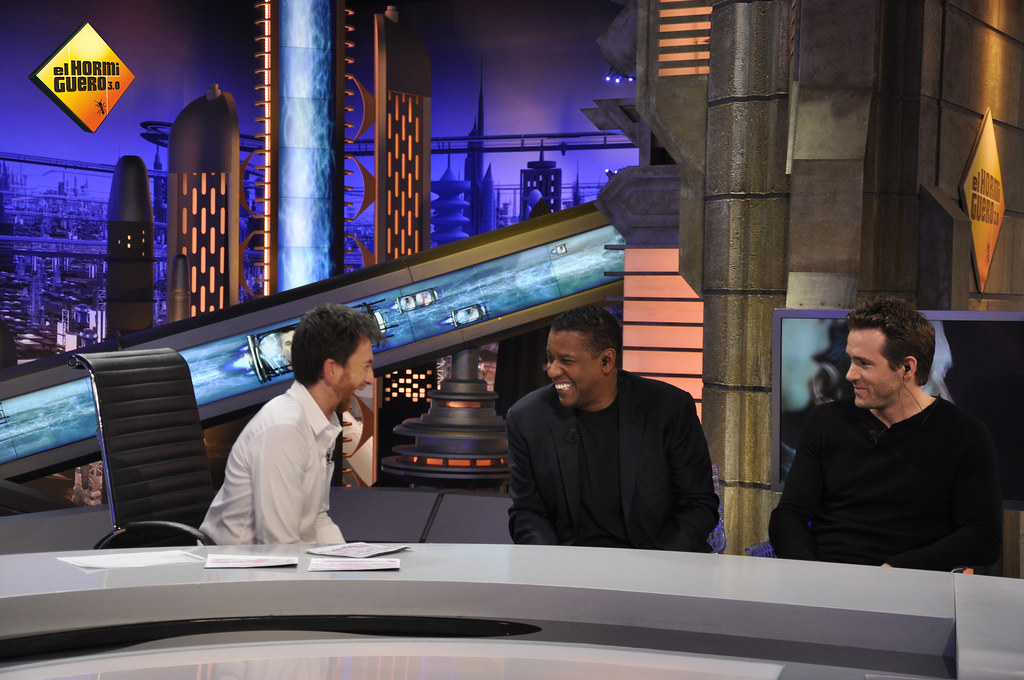
9. **A Master of Craft: Embracing Complexity and Dominating the 2000s**
The dawn of the new millennium found Denzel Washington reaching new heights of critical and commercial success, solidifying his reputation as a master craftsman capable of embracing complex and often morally ambiguous characters. At the 57th Golden Globe Awards in 2000, he received the Golden Globe Award for Best Actor – Motion Picture Drama for his indelible performance in ‘The Hurricane,’ becoming the first Black actor since Sidney Poitier in 1963 to win in that category. Mick LaSalle of the San Francisco Chronicle eloquently praised his work as “a penetrating portrait of life at its most extreme.” This was followed by a box-office hit with ‘Remember the Titans’ (2000), where he starred as football coach Herman Boone, grossing over US$100 million in the U.S., with Salon noting he was the “linchpin” of the film.
His career then took a daring turn with the Antoine Fuqua-directed crime thriller ‘Training Day’ (2001), where Washington delivered a chilling, Oscar-winning performance as Detective Alonzo Harris, a corrupt Los Angeles police officer. Roger Ebert described it as a “rare villainous role” and likened him to “a monster from a horror film, unkillable and implacable.” This transformative performance earned him an Academy Award for Best Actor, making him only the second African-American actor, after Poitier, to achieve this honor. The same night, Poitier received an Honorary Academy Award, creating a poignant moment of generational recognition.
2002 marked Washington’s directorial debut with the well-received drama ‘Antwone Fisher,’ in which he also co-starred as a Navy psychiatrist. Stephen Holden of The New York Times commended his direction, observing, “Mr. Washington shows a confident grasp of cinematic narrative in a hearty meat-and-potatoes style. But the most remarkable aspect of his behind-the-camera debut is his brilliantly surefooted handling of actors.” That same year, he starred in the healthcare-themed drama ‘John Q.,’ a financial success despite mixed reviews, with critics consistently praising Washington’s intense and humane performance.
Between 2003 and 2006, Washington captivated audiences in a series of successful thrillers, showcasing his compelling screen presence in high-tension narratives. These included Carl Franklin’s ‘Out of Time’ opposite Eva Mendez, Tony Scott’s critically acclaimed ‘Man on Fire’ alongside Dakota Fanning, and the thought-provoking remake of ‘The Manchurian Candidate’ (2004) with Meryl Streep. In 2006, he starred in Spike Lee’s sophisticated bank heist thriller ‘Inside Man,’ co-starring Jodie Foster and Clive Owen, which Variety praised for its “flashy cast, clever script and vibrant showcasing of New York City.” He rounded out this period with the time-bending thriller ‘Déjà Vu.’
His commitment to the stage also saw him return to Broadway in 2005, taking on the role of Brutus in a revival of Shakespeare’s ‘Julius Caesar.’ While the production garnered mixed reviews, Washington’s undeniable Hollywood magnetism ensured its limited run was a consistent sell-out. The latter half of the decade brought more critically acclaimed film roles, including his second collaboration with Russell Crowe in Ridley Scott’s crime drama ‘American Gangster’ (2007), which earned him another Golden Globe nomination. He also directed and starred in the inspirational film ‘The Great Debaters’ that same year, before reuniting with Tony Scott for ‘The Taking of Pelham 123’ (2009).
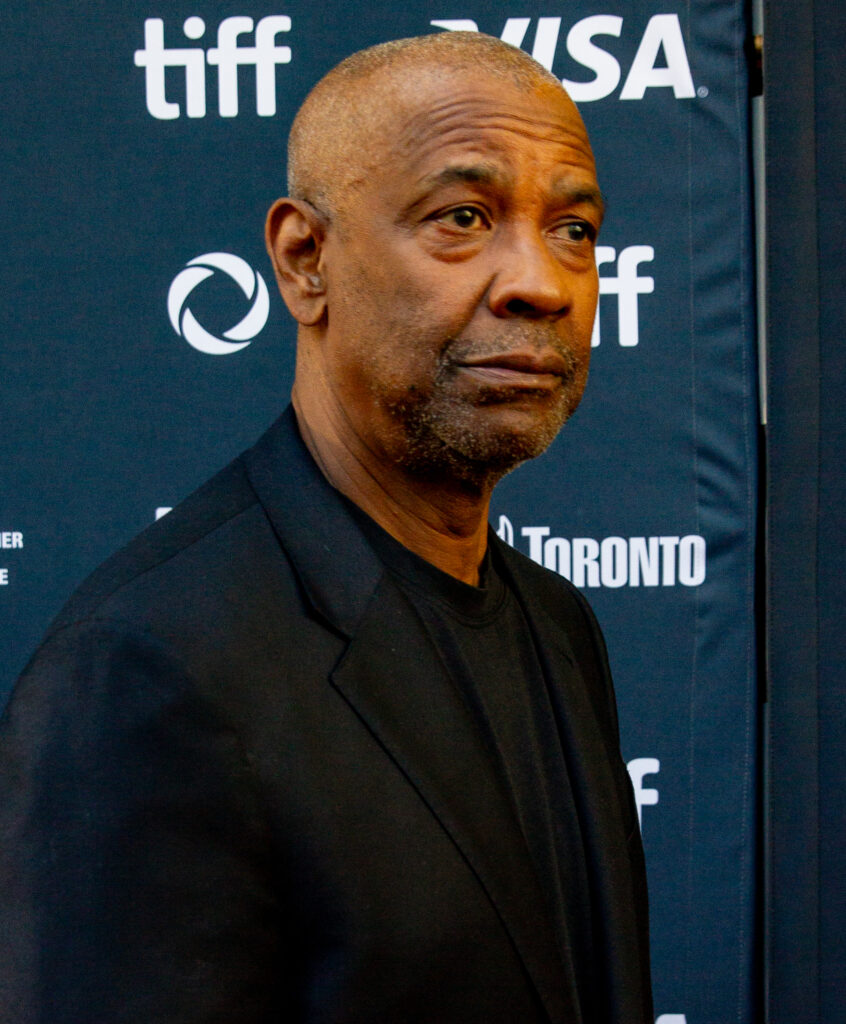
10. **The Broadway Return and Directorial Vision: A Decade of Reinvention**
The 2010s saw Denzel Washington not only continue his impressive film career but also make a significant return to his stage roots, reaffirming his identity as a consummate theatrical actor. In 2010, he captivated Broadway audiences with his powerful portrayal of Troy Maxson in the revival of August Wilson’s ‘Fences,’ starring opposite Viola Davis. Ben Brantley of The New York Times lauded his performance, noting, “Mr. Washington has the fluid naturalness we associate with good screen actors… face and stance alone provide fascinating (and damning) glimpses into Troy’s attitudes.” His compelling work earned him the Tony Award for Best Actor in a Play on June 13, 2010, marking a career highlight.
Simultaneously, Washington maintained a strong presence in cinema, showcasing his enduring appeal in various genres. That same year, he starred in ‘The Book of Eli,’ a gripping post-apocalyptic action-drama set in a dystopian near future, followed by his role as a veteran railroad engineer in the action film ‘Unstoppable.’ This marked his fifth and final collaboration with director Tony Scott, a partnership that consistently delivered high-octane thrillers, demonstrating Washington’s continued command of physically demanding and intense roles.
In 2012, Washington delivered another critically acclaimed performance in ‘Flight,’ earning him an Academy Award nomination for Best Actor for his portrayal of an alcoholic airline pilot facing a plane crash investigation. His dedication to his craft was further highlighted in ‘Safe House’ (2012), where he co-starred with Ryan Reynolds and famously prepared for his role by subjecting himself to a torture session that included waterboarding. The following year, he starred alongside Mark Wahlberg in the action-comedy ‘2 Guns,’ proving his versatility once again.
His commitment to the stage saw him take on another leading role in a Broadway production, starring in Lorraine Hansberry’s classic drama ‘A Raisin in the Sun’ from April to June 2014. The show received positive reviews and was honored with the 2014 Tony Award for Best Revival of a Play, further solidifying his theatrical bona fides. Concurrently, he initiated a successful action franchise with ‘The Equalizer’ (2014), directed by Antoine Fuqua, reprising his role as Robert McCall in two sequels, ‘The Equalizer 2’ (2018) and ‘The Equalizer 3’ (2023).
The middle of the decade brought his first Western film, ‘The Magnificent Seven’ (2016), a remake of the 1960 classic. Interestingly, Washington revealed he hadn’t watched Westerns extensively growing up due to his father’s restrictions, but found inspiration in ‘Seven Samurai.’ He also stepped behind the camera again to direct the critically acclaimed film adaptation of August Wilson’s ‘Fences’ (2016), in which he also starred opposite Viola Davis. Owen Gleiberman of Variety praised his dual role, stating, “Washington, as both actor and director, gets the conversation humming with a speed and alacrity.” His performance earned him another Oscar nomination for Best Actor, while Davis won her first Oscar for Best Supporting Actress.
Read more about: Keanu Reeves’ Early Hollywood Journey: From a Brief Name Change to Global Icon Status
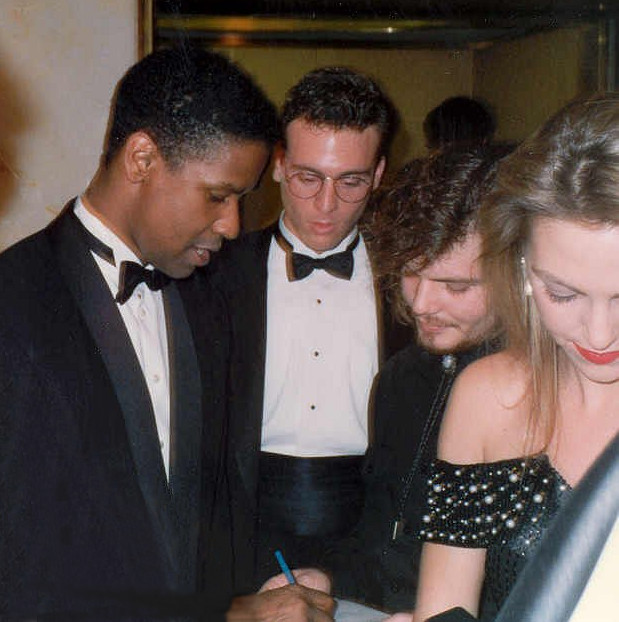
11. **Enduring Legacy: From Shakespearean Stages to Cinematic Epics**
Denzel Washington’s career in the late 2010s and beyond showcases an enduring commitment to challenging roles, from intricate legal dramas to producing impactful adaptations. In 2017, he starred in the legal drama ‘Roman J. Israel, Esq.,’ delivering a performance that Peter Bradshaw of The Guardian praised for its ability to style out “his character’s complicated and tricky mix of attributes.” While the film received mixed reviews, Washington’s portrayal earned him nominations for a Golden Globe Award, a Screen Actors Guild Award, and his ninth overall Academy Award nomination, solidifying his reputation for inhabiting nuanced and complex personalities.
His passion for the theater continued unabated with a return to Broadway in 2018, where he starred as Theodore “Hickey” Hickman in a revival of Eugene O’Neill’s ‘The Iceman Cometh.’ Alexis Soloski of The Guardian noted that while Washington’s “good looks and irrepressible charm” were present, the play’s most exciting moments came when he allowed that charm to falter, revealing “something uglier and more ravaged underneath.” Critics consistently highlighted his Hollywood magnetism and swaggering authority, even within the demanding context of O’Neill’s work.
Washington also expanded his role as a producer in the 2020s, notably with the critically acclaimed Netflix film adaptation of August Wilson’s ‘Ma Rainey’s Black Bottom,’ starring Chadwick Boseman and Viola Davis. His acting career continued with diverse projects, including the crime thriller ‘The Little Things’ (2021) alongside Rami Malek and Jared Leto. That same year, he directed the poignant drama ‘A Journal for Jordan,’ based on Dana Canedy’s memoir, further showcasing his vision behind the camera.
Demonstrating his mastery of classical texts, Washington portrayed the titular character in the 2021 film adaptation of William Shakespeare’s tragedy ‘Macbeth.’ His performance garnered universal acclaim and earned him nominations for an Academy Award, a Golden Globe Award, and a Screen Actors Guild Award, reaffirming his profound power in high-stakes dramatic roles and his ability to bring Shakespearean gravitas to the modern screen.
The most recent years and upcoming projects highlight his continuing and diverse cinematic presence. In 2024, Washington starred in Ridley Scott’s epic historical drama ‘Gladiator II,’ where his performance was widely described as scene-stealing and earned him a Golden Globe Award nomination. He also produced ‘The Piano Lesson’ (2024), a Netflix film adaptation directed by his son Malcolm and starring his son John David, marking a true family collaboration. Looking ahead, Washington is set to return to Broadway in 2025 in Shakespeare’s ‘Othello,’ reunite with Spike Lee for ‘Highest 2 Lowest,’ join the Marvel Cinematic Universe in ‘Black Panther 3,’ and take on the iconic role of the Carthaginian general Hannibal for Netflix, cementing his legacy in an astonishing range of impactful and high-profile projects.
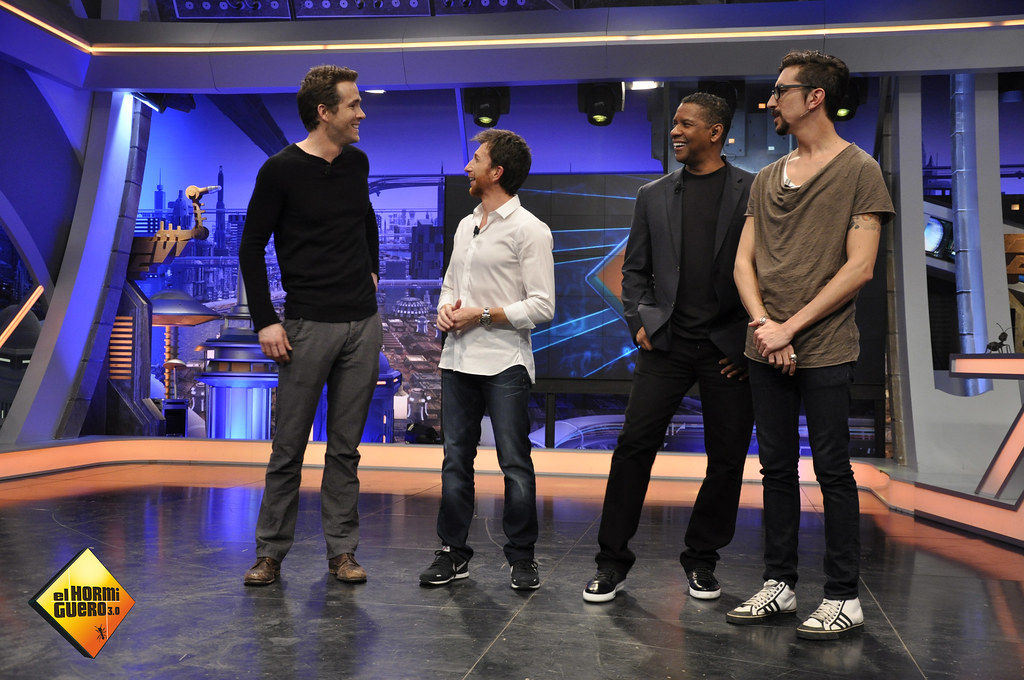
12. **Beyond Performance: Mentor, Inspiration, and the Art of Influence**
Despite a career brimming with accolades and the undeniable status of a global film icon, Denzel Washington consistently articulates a profound humility and a deep-seated connection to his artistic origins. He has frequently stated that he considers himself primarily a “stage actor and not a Hollywood star.” This distinction is not merely semantic; it speaks to a fundamental dedication to the craft’s raw integrity and the communal experience of live performance, an ethos that informs every character he embodies, whether on the grand cinematic stage or the intimate theatrical one.
Washington’s artistic lineage and inspirations are deeply rooted in the pantheon of iconic figures who shaped American theater and film. He openly cites James Earl Jones as a towering influence, declaring, “he is who I wanted to be” and acknowledging, “He’s my hero. My college theater career started because of [Jones].” This profound connection to such a venerable and powerful voice in acting illuminates Washington’s aspirations and his unwavering respect for the craft’s highest echelons.
Another groundbreaking figure, Sidney Poitier, served as an equally profound wellspring of inspiration for Washington, whom he described as “a mentor, needless to say, an example, a friend.” Poitier’s pioneering career, marked by dignity, grace, and an unwavering commitment to powerful storytelling, undoubtedly cleared pathways and established a formidable model for Washington’s own extraordinary journey through the often challenging landscapes of Hollywood.
However, Washington’s impact extends far beyond his own acclaimed performances and the inspirations he draws from. He has actively embraced the role of a mentor, generously passing on his invaluable wisdom and vast experience to a new generation of actors. This commitment to nurturing talent is evidenced by the impressive roster of prominent names who have benefited from his guidance, including Chadwick Boseman, Mahershala Ali, Michael B. Jordan, Jamie Foxx, Will Smith, Jake Gyllenhaal, Austin Butler, and Glen Powell.
This dedication to fostering the next wave of artistic excellence underscores Washington’s belief in the collaborative and communal spirit of acting and storytelling. It reflects a profound generosity of spirit, a willingness to uplift and guide others, thereby ensuring that the torch of artistic integrity and conscious career choices continues to burn brightly. Through his multifaceted contributions as an actor, director, producer, and mentor, Denzel Washington stands not merely as a legend but as a living legacy, profoundly shaping the landscape of contemporary performing arts.
Read more about: Unlocking Peak Performance: Bill Gates’ Essential Habits for Managing Multiple Ventures and Sustained Success
Through these myriad choices, both deliberate and divinely guided, Denzel Washington has sculpted a career that is as profound as it is prolific. He is not merely an actor who inhabits roles, but a craftsman who infuses them with soul, a visionary who directs with purpose, and a mentor who inspires with unwavering integrity. His journey, marked by an evolving craft and a conscious commitment to portraying the complexities of the human spirit, continues to resonate deeply, ensuring his place not just in cinematic history, but as an enduring beacon of principled artistry for generations to come.



